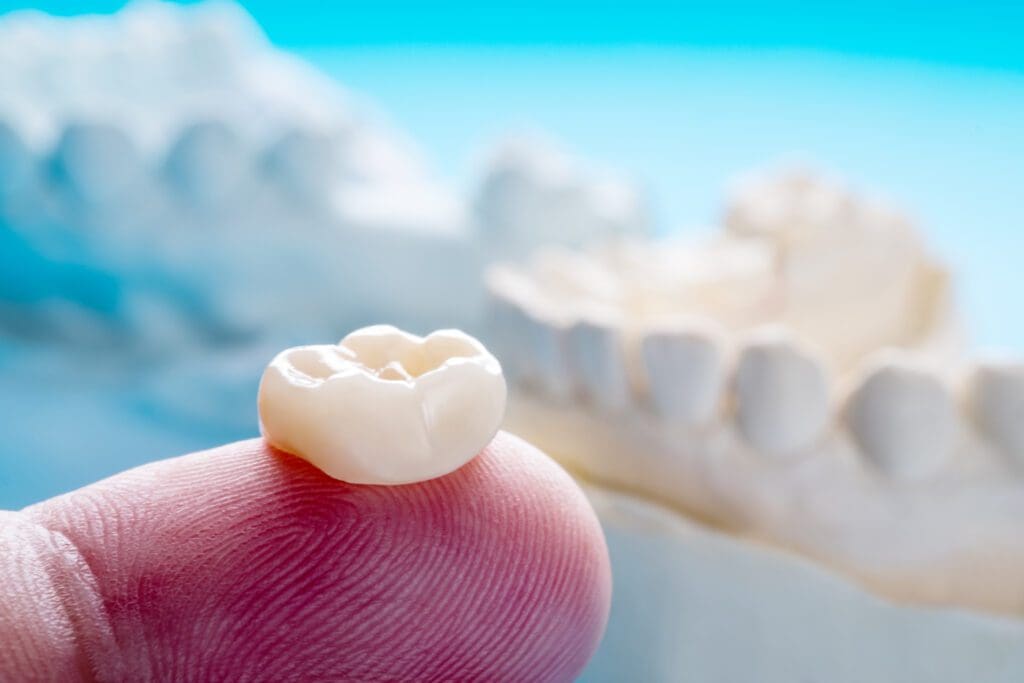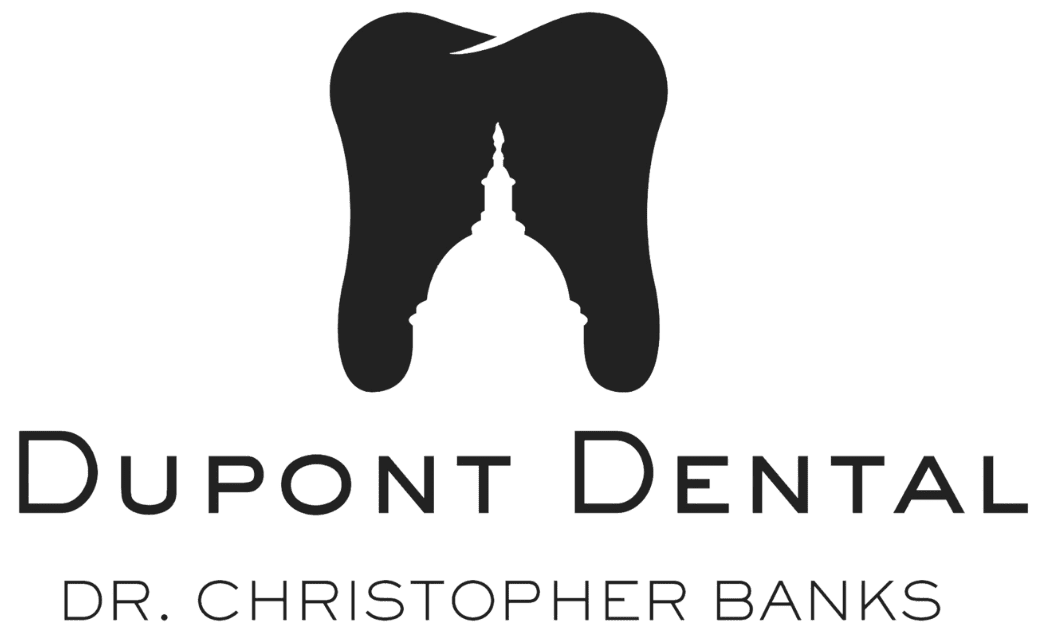Dental crowns are tooth-colored caps that can repair and preserve damaged teeth. A single crown can fit over a tooth to strengthen the tooth and create a natural look. Crowns are designed to fit your tooth as closely as they can. If you have a crown fitted, it should blend in with your natural tooth.
Dr. Christopher Banks offers dental crown treatment as a restorative dental service in his Washington, DC, office. He ensures dental crowns blend in with the smile and create a seamless look.

Why Should You Choose Dental Crowns?
Dental crowns are an excellent solution to repair the appearance and comfort of your tooth. Crowns can last for years, as they are durable and should withstand daily wear and tear. Dental crowns can be made of porcelain, ceramic, glass, or even gold or metal alloy. We recommend using crowns made of tooth-colored materials because they look more natural.
Even if metal crowns are used on the posterior teeth, they are still visible when the mouth is open. Using materials like porcelain or ceramic creates a more seamless look.
Crowns not only cover damaged teeth. Dental crowns can cap off dental implants for patients missing a permanent tooth. Traditional dental bridges use dental crowns to protect teeth on either side of a tooth gap to hold false teeth in place. Crowns have many uses in restorative dentistry while improving the look of damaged and worn teeth.
What Dental Crowns Can Treat
Dental crowns are extremely valuable because they can treat various cosmetic and restorative dental conditions.
Correcting Cosmetic Flaws
Discolored teeth are something that everyone will experience at some point. Traditionally, we turn to professional teeth whitening to correct these issues. But it all depends on the type of discoloration and what caused it. Sometimes, discoloration doesn’t respond to the usual techniques. With a dental crown, we color-match it to the shade of white that you desire. Since it covers the entire tooth, no one will see the discolored one anymore.
When patients come to us with a misshapen or deformed tooth, it’s usually because they aren’t happy with how it looks. However, they can have other impacts. Each tooth has a specific job for chewing your food and working with your tongue to form sounds. Deformed teeth can hinder these things. A dental crown restores the correct shape of the tooth so that it can perform these duties the way it should.
Assisting Natural Teeth
One of the most common things we use dental crowns for is stabilizing a tooth after a root canal procedure. When we perform a root canal, we remove infected dental pulp and soft tissue from inside your tooth, refilling it with a biocompatible resin. Sometimes, the tooth doesn’t return to full function. A dental crown ensures you can use it normally while it further seals off the tooth from further infection.
A dental bridge replaces multiple consecutive teeth. On each span end, brackets support the dental bridge using the natural teeth. The stress of the dental bridge is a lot for the natural teeth to take. Anchor teeth wear down faster than other teeth and are more susceptible to tooth decay and other problems. If we use crowns on the anchor teeth, the crowns take on the stress and pressure of supporting the bridge instead of your natural tooth structure.
Treating Broken and Decayed Teeth
Crowns are often the last line of defense to keep the natural tooth structure. We want to preserve the tooth root whenever possible to avoid jawbone deterioration and other consequences. A dental crown can keep pieces of a shattered tooth together or replace the portions of your teeth that are gone from decay.
It’s not a big deal when a small chip comes from a tooth. But when it’s a larger portion, there are bigger consequences. A big break exposes sensitive dental nerves and pulp in the tooth’s center. It can also create sharp edges that can cut into your tongue or the inside of the cheeks. A dental crown protects the nerves and ensures the edges don’t harm soft tissue.
Completing a Dental Implant
A dental implant is the gold standard for replacing missing teeth. When completed with a custom dental crown, it looks and feels the most like a natural tooth. You’re able to eat all of the foods you would normally and not have to worry about it harming your restoration.
Dental Crown Treatment in Washington, DC
Dr. Banks must prepare the treated tooth to fit the dental crown properly. He will gently etch into the tooth enamel. How much is removed depends on the thickness of the crown. Then, he will take an impression of your tooth, which he sends to a dental technician to create the crown.
Dr. Banks will color-match the tooth so the crown blends in with the smile. He may also make impressions of the jaw opposite of the treated tooth to ensure the crown matches your teeth. Once the crown is complete, Dr. Banks will double-check the shape and size of the crown and make adjustments as needed before cementing the crown to the tooth.
Dental crowns can be cared for like natural teeth. You can brush and floss your crown using a soft-bristled toothbrush and non-abrasive toothpaste. With the proper care, dental crowns can last ten to fifteen years. Maintaining a good oral hygiene routine and visiting the dentist regularly will ensure the crowns stay bright and last.
Restore Damaged Teeth
Do you have a worn or damaged tooth that makes biting and chewing uncomfortable? Contact our office for a dental crown today at (202) 946-4720. You may also schedule a dental appointment with Dr. Banks on our website.
Don’t hesitate to contact our office with any questions about dental crowns or restorative care. We are happy to help our patients learn about their treatment options at Dupont Dental.
